For many of us, pets are part of the family.

They offer companionship, emotional support, and a sense of purpose that few other relationships can match. Yet as the reality of a rapidly warming world sets in, it’s worth asking some difficult questions: what are the broader environmental impacts of keeping pets, and how can we, as responsible owners, adapt to minimise the damage?
The ethics of pet ownership have always been complex, touching on issues of animal welfare, breeding practices, and wildlife conservation. Climate change adds a new, urgent layer to the conversation, forcing us to think carefully about how our personal choices ripple out to affect the planet’s fragile ecosystems.
The environmental footprint of our pets is worth noting.
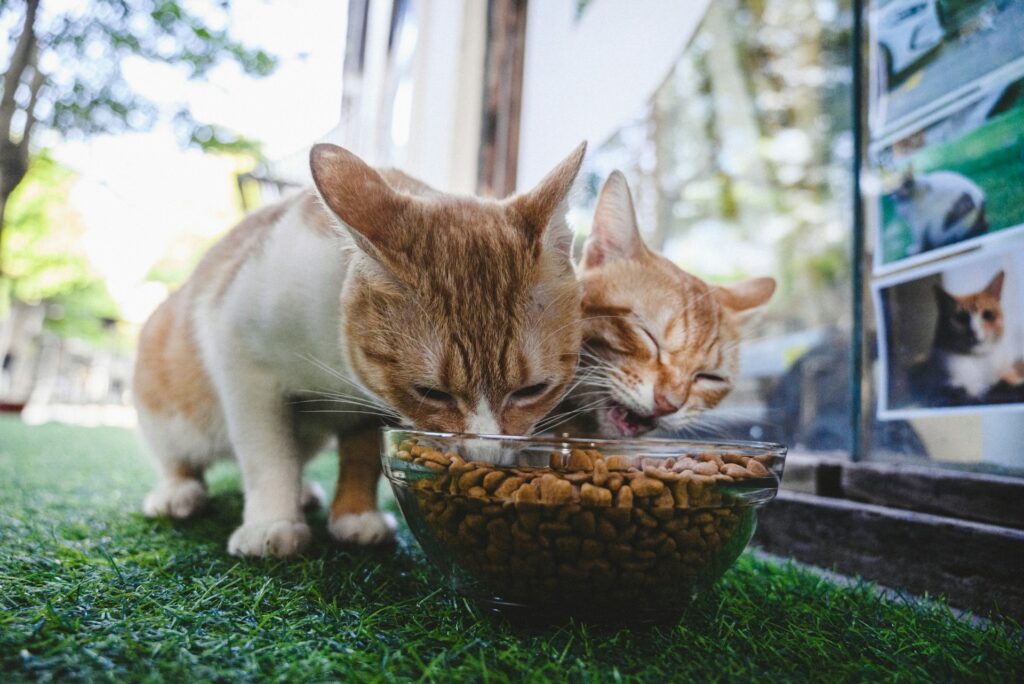
It might come as a surprise, but the environmental impact of our pets is considerable. A 2017 study published in PLOS One estimated that dogs and cats in the United States consume around 25–30% of the animal-derived calories produced, contributing significantly to greenhouse gas emissions associated with meat production.
Pet food production demands vast amounts of land, water, and energy. Livestock farming — a primary source of ingredients for pet foods — is a major driver of deforestation, biodiversity loss, and methane emissions. While the UK’s pet ownership rates are lower than those in the US, the trends are similar: the carbon “pawprint” of domestic animals is increasingly significant.
Beyond food, there’s the environmental cost of pet accessories — from plastic toys to synthetic bedding — many of which are produced using fossil fuels and end up as landfill waste. The veterinary industry, too, leaves an imprint, from pharmaceutical runoff affecting waterways to single-use plastics used in medical care. Even something as routine as pet waste contributes to waterway pollution if improperly managed.
We should consider climate impact when making choices about pets.
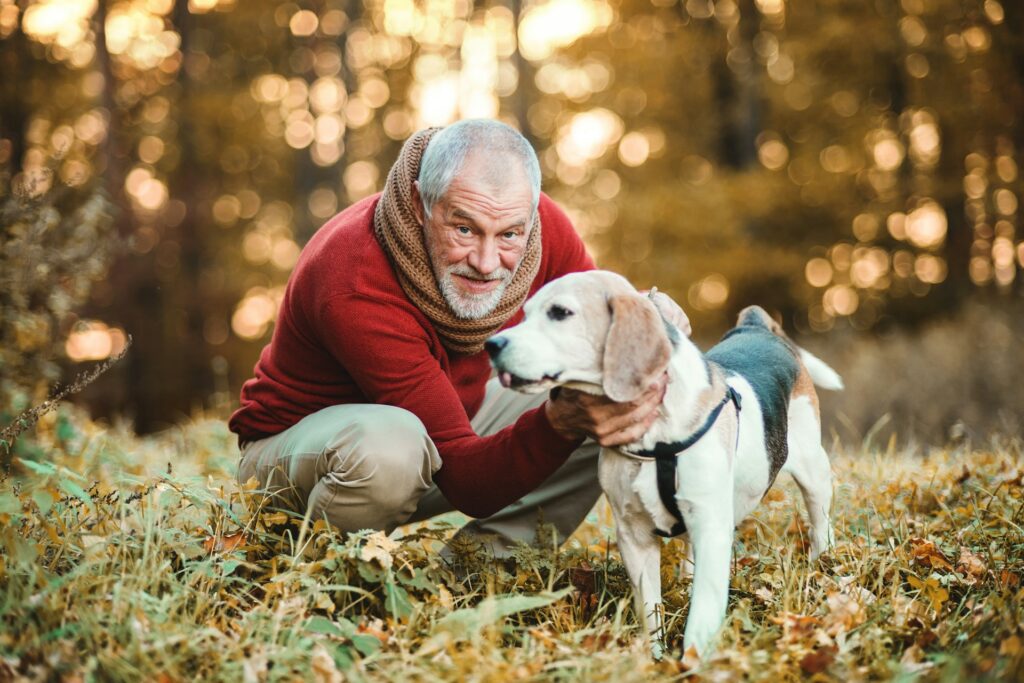
As climate consciousness grows, more people are questioning what types of pets are most appropriate in an era of environmental crisis. Larger pets, such as big dog breeds, generally have a heavier environmental footprint simply because they consume more resources over their lifetimes.
Exotic pets present even greater ethical challenges. The trade in exotic animals threatens wild populations and increases the risk of introducing invasive species, which can devastate local ecosystems already under pressure from climate change.
The growing conversation around adoption versus breeding is also vital. Breeding purebred animals — particularly those with known health issues such as brachycephalic dogs (e.g., bulldogs and pugs) — continues to raise ethical concerns around animal welfare and resource consumption. Organisations like the RSPCA advocate strongly for adoption, pointing out that giving a home to an existing animal is far more sustainable and compassionate than supporting an industry that sometimes prioritises aesthetics over welfare.
The impact on wildlife can’t be overlooked.
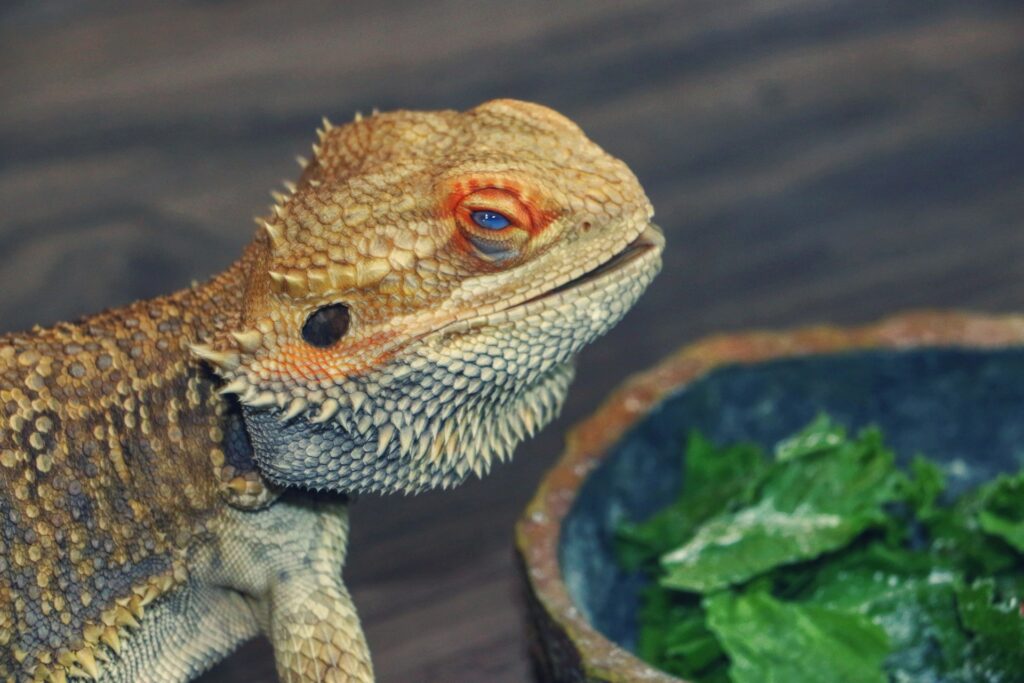
Pet ownership doesn’t just affect our homes — it has a far-reaching impact on wild ecosystems. Cats, despite their charm, are among the world’s most prolific invasive predators. Studies estimate that domestic cats in the UK kill around 100 million prey animals annually. Birds, mammals, reptiles, and amphibians all fall prey, compounding the losses caused by habitat destruction and climate stress.
Outdoor cats contribute to local extinctions, disrupt delicate food webs, and can undermine conservation efforts. Solutions like keeping cats indoors, building enclosed “catios,” or fitting them with brightly coloured anti-predation collars can drastically reduce their impact.
Dogs can also disturb wildlife, especially when allowed to roam off-leash in sensitive areas such as nature reserves, beaches, and moorlands. Ground-nesting birds are particularly vulnerable during breeding seasons, and even well-meaning dog owners may not realise the harm an excited dog can do simply by running through nesting areas.
Veterinary care often goes hand in hand with climate impact.
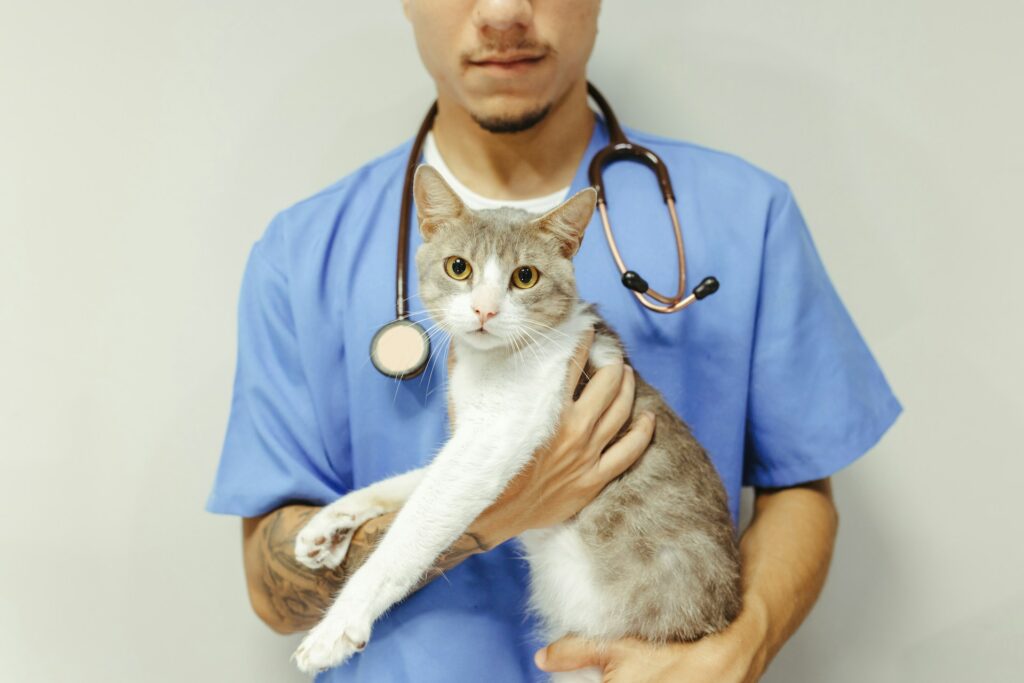
Veterinary medicine, like human healthcare, carries a significant environmental footprint. Pharmaceutical production, medical waste, energy-intensive procedures, and resource-heavy facilities all contribute to emissions and pollution.
However, the veterinary industry is beginning to respond. Groups like Vet Sustain in the UK are leading efforts to make veterinary practice more eco-conscious. They promote measures such as reducing single-use plastics, responsibly sourcing medical supplies, and encouraging preventive care to reduce the need for more resource-heavy interventions.
Vets are also uniquely placed to educate pet owners about sustainable choices, from diet to environmental enrichment, helping to create a ripple effect of awareness and action.
Practical steps for sustainable pet ownership

While the environmental challenges of pet ownership can seem daunting, practical solutions are within reach:
Choose sustainable pet food: Brands like Yora, which use insect protein and other sustainable ingredients, offer lower-impact alternatives to traditional meat-based diets. Some owners are exploring flexitarian diets for their dogs, though any changes should be made carefully under veterinary advice.
Adopt rather than buy: Opting for rescue animals over bred pets reduces environmental pressure and addresses the huge problem of pet overpopulation.
Eco-friendly pet products: Choose toys, beds, and accessories made from recycled, biodegradable, or sustainably sourced materials. Avoid disposable plastics whenever possible.
Manage outdoor access: Keep cats indoors or create safe outdoor enclosures. Walk dogs on leads in sensitive wildlife areas, and respect seasonal protections for nesting or breeding animals.
Dispose of waste responsibly: Use biodegradable waste bags and consider composting pet waste if done safely. Always avoid letting waste contaminate waterways.
Support green veterinary practices: Look for vets who are committed to sustainable operations and preventive healthcare.
Think carefully about new pets: Consider whether your lifestyle and future plans are compatible with pet ownership, especially in a world where climate instability may create new challenges.
There needs to be a broader cultural shift.
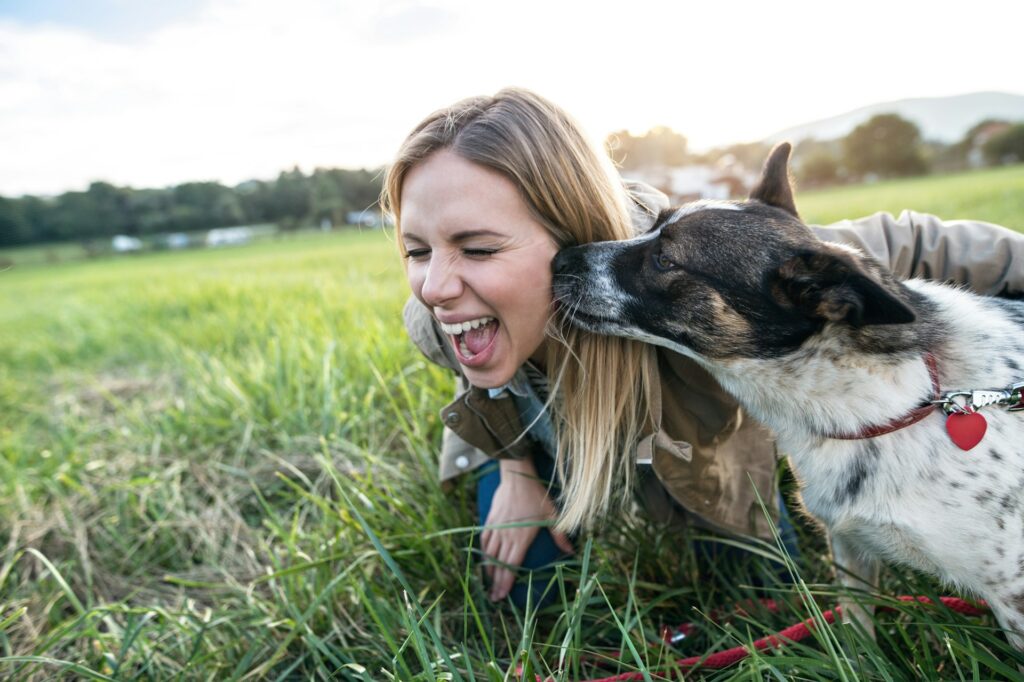
Ultimately, making pet ownership more ethical in a warming world requires a profound cultural shift. We must move away from viewing pets as status symbols or accessories and instead embrace a philosophy of responsible stewardship.
Not everyone may be able to own pets responsibly in a future shaped by climate instability. As urbanisation increases and green spaces shrink, pet ownership models may need to evolve — potentially moving toward community pet ownership schemes or more flexible fostering arrangements.
We must also rethink breeding practices and support policies that discourage exploitative industries while encouraging responsible adoption, rescue, and conservation.
It’s possible to love our pets and the planet.

Caring deeply for animals should naturally extend to caring for the environment they — and we — depend upon. In a warming world, ethical pet ownership means making choices that honour our pets while protecting the broader web of life.
The goal is not to induce guilt, but to inspire thoughtful action. By being mindful of how we feed, house, and care for our pets, we can reduce our environmental footprint without diminishing the love and joy pets bring into our lives.
Ultimately, in choosing to be better stewards of our pets, we also choose to be better stewards of the planet — ensuring that future generations, both human and animal, have a thriving world to call home.